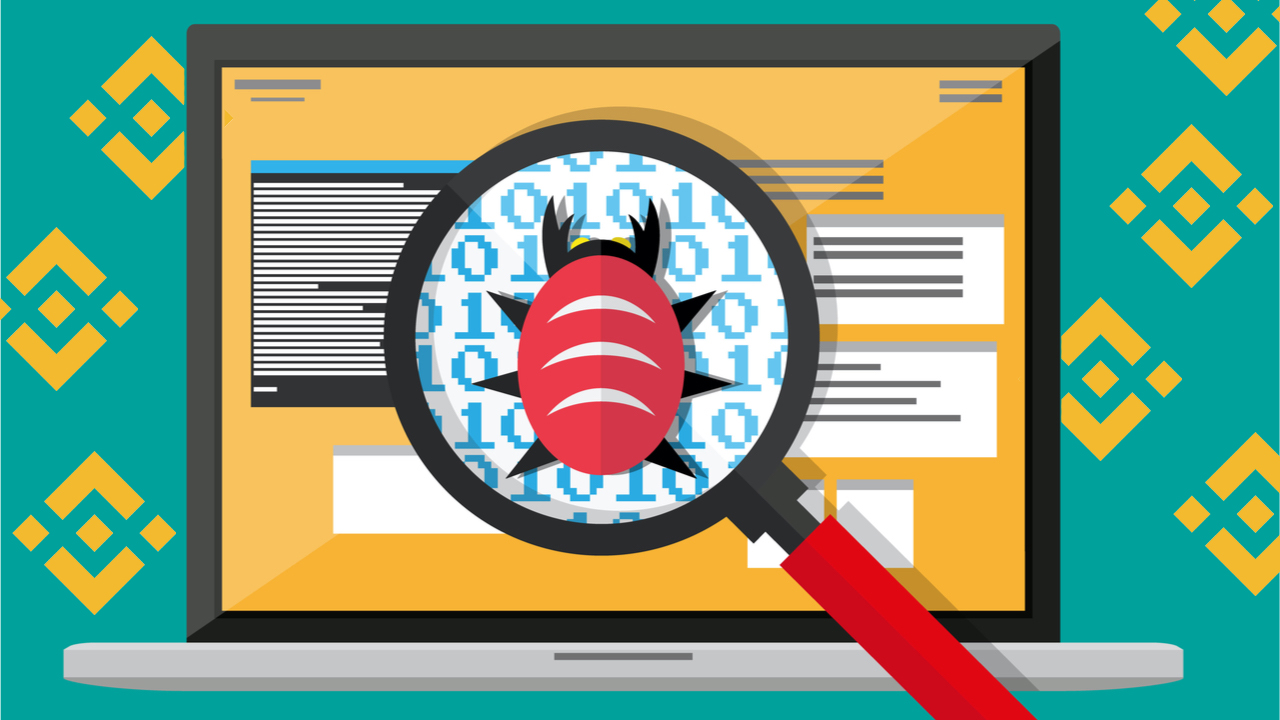 According to blockchain security company Certik, the number of cryptocurrency incidents involving exit scams, hacks, and code exploits in Dec. 2022 was the lowest monthly figure of the year. Certik noted that the combined incidents amounted to $62.2 million “lost to exploits, hacks, and scams.” Record Low Cyber Attacks in December 2022 Result in $62.2 […]
According to blockchain security company Certik, the number of cryptocurrency incidents involving exit scams, hacks, and code exploits in Dec. 2022 was the lowest monthly figure of the year. Certik noted that the combined incidents amounted to $62.2 million “lost to exploits, hacks, and scams.” Record Low Cyber Attacks in December 2022 Result in $62.2 […]
Cybercriminals will flock to the Metaverse next year to prey on unsuspecting virtual world participants according to a report by cybersecurity firm Kaspersky.
Malware, ransomware attacks and phishing are not the only scourges of the crypto industry as the Metaverse could become a big target next year, according to cybersecurity experts.
In its “Consumer Cyberthreats: Predictions for 2023” report on Nov. 28, cybersecurity firm Kaspersky forewarned that there will be greater exploitation of the Metaverse due to lacking data protection and moderation rules.
Kaspersky acknowledged there are currently only a handful of metaverse platforms, but the number of metaverses is set to expand in the coming years and the market could even top $50 billion by 2026. That expansion will entice cyber criminals to the ecosystem seeking to exploit unwitting virtual world participants.
“As the metaverse experience is universal and does not obey regional data protection laws, such as GDPR, this might create complex conflicts between the requirements of the regulations regarding data breach notification.”
Social media is already a hotbed of data breach activity so it stands to reason that the Metaverse will be an extension of this. As reported by Cointelegraph earlier this year, Social media was responsible for more than $1 billion in crypto scam-related losses in 2021.
Kaspersky also predicted that virtual abuse and sexual assault will spill over into Metaverse ecosystems. It mentioned cases of “avatar rape and abuse” adding that without protection mechanisms or moderation rules “this scary trend is likely to follow us into 2023.”
Meta, the firm formerly known as Facebook, has already received a lot of pushback over its Metaverse ambitions due to the lack of user protection and privacy concerns on its social media platform.
The report predicted that in-game virtual currencies and valuable items will be one of the “prime goals” among cybercriminals who will seek to hijack player accounts or trick them into fraudulent deals to fork over valuable virtual assets. Most modern games have introduced some form of monetization or digital currency support which will become a honeypot for malicious actors.
Related: The Metaverse is a new frontier for earning passive income
Kaspersky noted that new forms of social media will also bring more risks. It specifically mentioned a shift to augmented reality-based social media, adding that cybercriminals can start “distributing fake trojanized applications” to infect devices for further malicious purposes.
Threats to new AR-based social media and metaverse platforms are primarily data and money theft, phishing, and account hacking, the report concluded.

Blockchain security firm Peckshield shared the stats on Halloween night, but also added the month saw $100 million in crypto returned.
The month of October has broken all records for crypto exploits and the amount of digital loot pilfered — living up to its new moniker of "Hacktober" — according to the latest figures.
On Oct. 31, blockchain security firm PeckShield tweeted some scary statistics for the month, reporting a total of $2.98 billion in stolen digital assets as of Oct. 31, 2022, which is nearly double the $1.55 billion lost in all of 2021.
"Hacktober" saw around 44 exploits affecting 53 protocols, it added. Malicious actors made off with a whopping $760 million in the month, however, $100 million had been returned.
#PeckShieldAlert ~44 exploits (53 protocols affected) grabbed ~$760.2M in Oct. 2022, and ~$100M already returned the exploited protocols (Total loss: $657.2M)
— PeckShieldAlert (@PeckShieldAlert) October 31, 2022
As of October 2022, the stolen funds (~$3B) in 2022 “doubled” last year’s loss pic.twitter.com/mKZAjVk7UU
After October, March was the second-highest month for hacked funds with just under $710 million stolen. The majority of this was from the Ronin bridge exploit which resulted in $625 million in crypto assets being pilfered.
The top exploit for October was by far the BNB Chain which lost $586 million according to PeckShield. It listed the Mango Markets DeFi protocol as second, despite it including an agreement with the exploiter to return some of the funds.
There were several other notable exploits in October according to DeFiYield’s Rekt Database. These include the Freeway crypto yield platform which it classified as a $60 million rug pull, Transit Swap which lost $29 million, Team Finance taking a $13 million hit, and Moola Market losing $9 million.
Related: Barely halfway and October’s the ‘biggest month’ in crypto hacks
DeFiYield released its own report on Nov. 1 depicting the dire state of the hackfest that took place last month.
It claims that more than $1 billion was lost to crypto scams in October though it includes what it considers as rug pulls and Ponzis in addition to direct protocol exploits. DeFiYield reported 35 total incidents for the month, 15 of which were rug pulls.
On a brighter note, the report stated that almost $890 million in crypto funds had been recovered so far in 2022.

The hacker who exploited an Olympus DAO (OHM) smart contract for $300,000 worth of assets is already returning the stolen funds. According to blockchain security analytics firm PeckShield, an error in one of Olympus DAO’s smart contract bonds resulted in a $292,000 exploit earlier today. “It seems the related OlympusDAO’s BondFixedExpiryTeller contract has a redeem() […]
The post Olympus DAO Hacked for 30,000 OHM Worth $300,000, Perpetrator Returns Funds Within Hours appeared first on The Daily Hodl.
 The United States Federal Bureau of Investigation (FBI) has issued a public service announcement about exploits attackers have recently used to steal cryptocurrency from investors that put money on decentralized finance (defi) platforms. The organization also advised crypto investors to do their own research and verify that the decentralized finance platforms chosen were audited by […]
The United States Federal Bureau of Investigation (FBI) has issued a public service announcement about exploits attackers have recently used to steal cryptocurrency from investors that put money on decentralized finance (defi) platforms. The organization also advised crypto investors to do their own research and verify that the decentralized finance platforms chosen were audited by […]
Smart contracts governing DeFi platforms identified as a particular cause for concern for the enforcement agency.
The U.S Federal Bureau of Investigation (FBI) has issued a fresh warning for investors in decentralized finance (DeFi) platforms, which have been targeted with $1.6 billion in exploits in 2022.
In an Aug. 29 public service announcement on the FBI's Internet Crime Complaint Center, the agency said the exploits have caused investors to lose money — advising investors to conduct diligent research about Defi platforms before using them, while also urging platforms to improve monitoring and conduct m rigorous code testing.
The law enforcement agency warned that cybercriminals are out in force to take advantage of "investors' increased interest in cryptocurrencies," and "the complexity of cross-chain functionality and open source nature of Defi platforms."
The #FBI warns that cyber criminals are increasingly exploiting vulnerabilities in decentralized finance (DeFi) platforms to steal investors cryptocurrency. If you think you are the victim of this, contact your local FBI field office or IC3. Learn more: https://t.co/fboL1N17JN pic.twitter.com/VKdbpbmEU1
— FBI (@FBI) August 29, 2022
The FBI observed cybercriminals exploiting vulnerabilities in smart contracts that govern DeFi platforms in order to steal investors' cryptocurrency.
In a specific example, the FBI mentioned cases where hackers used a "signature verification vulnerability" to plunder $321 million from the Wormhole token bridge back in February. It also mentioned a flash loan attack that was used to trigger an exploit in the Solana DeFi protocol Nirvana in July.
However, that's just a drop in a vast ocean; according to an analysis from blockchain security firm CertiK in M, since the start of the year, over $1.6 billion has been exploited from the DeFi space, surpassing the total amount stolen in 2020 and 2021 combined.
While the FBI admitted that "all investment involves some risk," the agency has recommended that investors research DeFi platforms extensively before use, and when in doubt, seek advice from a licensed financial adviser.
The agency said it was also very important that the platform's protocols are sound, and to ensure they have had one or more code audits performed by independent auditors.
Typically, a code audit involves a review of the platforms underlying code to identify vulnerabilities or weaknesses which could be exploited.
According to the FBI, any DeFi investment pools with an "extremely limited timeframe to join" or "rapid deployment of smart contracts" should also be approached with extreme caution, especially if they have not conducted a code audit.
Crowdsourced solutions, generating ideas or content by soliciting contributions from a large group of people, were also flagged by the law enforcement agency.
"Open source code repositories allow unfettered access to all individuals, to include those with nefarious intentions."
The FBI said DeFi platforms can also do their part to increase security by testing their code regularly to identify vulnerabilities, along with real-time analytics and monitoring.
An incident response plan and informing users about possible platform vulnerabilities, hacks, exploits, or other suspicious activity are also among the recommendations.
However, failing all that, the FBI urges American investors targeted by hackers to contact them through the Internet Crime Complaint Center or their local FBI field office.
Related: FBI issues public warning over fake crypto apps
Earlier this year, U.S. Deputy Attorney General Lisa Monaco announced the FBI was stepping up its efforts to address crime in the digital asset space with the formation of the Virtual Asset Exploitation Unit.
The specialized team is dedicated to cryptocurrency and includes experts to help with blockchain analysis as part of a shift in focus toward disruption of international criminal networks, rather than just their prosecution.
 The Binance Smart Chain has launched a $10 million bug bounty fund for projects building on top of the protocol, called “Priority One.” The initiative aims to keep the blockchain network secure by encouraging bug bounty hunters and ethical hackers. Binance Smart Chain Reveals $10 Million Bug Bounty Fund ‘Priority One’ Security experts and bug […]
The Binance Smart Chain has launched a $10 million bug bounty fund for projects building on top of the protocol, called “Priority One.” The initiative aims to keep the blockchain network secure by encouraging bug bounty hunters and ethical hackers. Binance Smart Chain Reveals $10 Million Bug Bounty Fund ‘Priority One’ Security experts and bug […]
Binance beefs up blockchain analytics amid a surge in DeFi exploits.
Cryptocurrency and blockchain intelligence company CipherTrace has announced analytics support for Binance Smart Chain (BSC) amid a rise in attacks and vulnerabilities on protocols running on the network.
In an announcement on May 27, the firm stated that it aims to identify higher-risk financial transactions taking place on BSC and its decentralized applications which now number more than 600. CipherTrace already tracks the activity of over a thousand digital assets. Dave Jevans, CEO of CipherTrace, stated that once support for a blockchain is added, the firm can add analytics for all applications built on that network.
The inclusion of CipherTrace’s analytics also allows Virtual Asset Service Providers (VASPs), such as exchanges, banks, OTC desks, hosted wallets, and other financial institutions, to flag transactions occurring on BSC that have a high probability of originating in illicit activity, including fraud.
Binance Chief Compliance Officer, Samuel Lim, noted that compliance with global anti-money laundering regulations is paramount and CipherTrace will help them achieve that.
“CipherTrace incorporating Binance Smart Chain data into its attribution system to support applications and exchanges is a move to combat illicit activities. In the long run, this will gain BSC more credibility and partnerships in the fiat and regulated space.”
BSC has been the epicenter of illicit activity and DeFi exploits over the past few months. The list of protocols losing money to malicious actors is growing, the largest of which is PancakeBunny which lost as much as $200 million in BNB and its native token in a massive flash loan attack on May 20.
Other DeFi protocols running on BSC that have been hacked or exploited recently include Cream Finance, bEarn, Bogged Finance, Uranium Finance, Meerkat Finance, SafeMoon, and Spartan Protocol.
Earlier this month, Marie Tatibouet, chief marketing officer of crypto exchange Gate.io told Cointelegraph that the lack of due diligence has exacerbated these exploits due to BSC’s centralized nature, adding that “they are greenlighting hundreds of projects every single week.”

The leveraged yield farming protocol looks to put multiple missteps in the past with a successful relaunch.
After a rocky first quarter, decentralized finance (DeFi) platform Alpha Homora announced the relaunch of its v2 leveraged yield farming program today — and so far both traders and users are celebrating as both total value locked (TVL) and ALPHA token prices soar.
The version 2 of the platform, which allows for leverage up to 7x on popular yield farming positions on protocols such as Sushi, Curve, and Balancer, notably had to shut down to new positions after a devastating hack in February. The protocol suffered $37 million in losses, which counts among the most devastating exploits in DeFi history.
However, the relaunch so far has gone swimmingly by multiple metrics. The ALPHA token — which underwent a revamped tokeneconomic design during the downtime — is up 11.1% to $2.28 on the day, and TVL has increased by nearly $100 million since the relaunch to a total of $675 million.
#AlphaHomoraV2 now has...
— Alpha Finance Lab (@AlphaFinanceLab) May 13, 2021
$675M TVL
$500M lent
$170M collateral
$99M borrowed
Though the demand to use the product is high, we'll maintain security measure that we set out to do by keeping $100M credit limit for now.
Will actively monitor & increase accordingly
It now remains to be seen how long the protocol will remain stable. In addition to the February exploit, the platform was tied to Rari Capital’s $11 million loss earlier this week, though that particular exploit was due to no fault on Alpha Finance Lab’s part.
The relaunched v2 also came with a new set of audits, but ultimately the greatest test of a DeFi protocol is time — the longer it’s survived scrutiny from would-be exploiters, the more users can trust its longevity.
Some observers are additionally off-put by Alpha’s unusual model, which has little precedent in Tradfi. However Leo Cheng of C.R.E.A.M. Finance, whose Iron Bank protocol-to-protocol lending platform enables v2’s leveraged yield farming, argued in an interview with Cointelegraph that if flash loans can be a key cog in DeFi’s capital efficiency, leveraged lending is a logical next step.
By nature, says Cheng, a smart contract “doesn’t quite care, and it doesn’t quite see the borders with the smart contract projects” with regards to where funds are coming from. As long as a transaction will end with the various protocols involved in the green, the transaction will go through.
Alpha Finance Labs did not respond to multiple requests for comment.